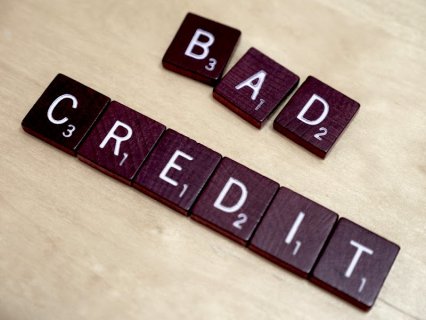
For better or worse, your credit score has become your "SAT score" when it comes to financing. If you have a high score, you'll have a pretty easy time getting credit offers from a wide variety of funding sources. If your score is low or nonexistent, however, you won't.
But a low score isn't something you can run away from, and even if you avoid it, it won't go away. The trick is to fund your business in ways that actually get your score back on track so when you're ready to move your business to the next stage, your score will start opening doors rather than getting them slammed in your face.
Here are some ideas for entrepreneurs with low scores who are faced with funding challenges:
1. Look beyond credit cards and bank loans for financing. Studies show that credit card and bank financing account for just 25 percent of the total funding needs of early-stage entrepreneurs. This statistic should provide you some comfort, because it implies that 75 percent of the money you need can come from other sources that rely less on your credit rating.
While there are credit cards and lending programs designed for individuals with poor credit, these options will typically charge a higher interest rate to compensate for the credit risk posed by a sub-prime borrower. One bank option for those with poor credit scores is a home equity line of credit, though I'd be wary of putting your home on the line to finance a risky early-stage venture.
2. Seek loans from your relatives and friends. Everyone likes the idea of entrepreneurship, which may be why, at some point, more than 50 percent of all business owners get financing help from friends and relatives. Chances are, your relatives and friends want to see you succeed and may be able to help make your business dream a reality. They also may not dwell on your poor credit score because they trust you, or they believe your business concept to be sound. (Banks used to evaluate your character and business conditions the way family and friends still do, but credit scoring models have made lending decisions more automated, resulting in the critical power your credit score holds over you.)
If you follow the advice I have shared in previous columns on identifying private lenders and understanding their risk profile, you should be able to get access to cheap, quick and patient business capital. Also, you can now use private loans from relatives, friends and business associates to rebuild your credit score if you use a loan management company to service the loan and report payments to credit bureaus.
3. Investigate microlenders and web-based lenders. There are several nonbank lenders on the internet that now offer microloans to entrepreneurs. These loans are typically in the $5, 000 to $25, 000 range. Some of these sites are excellent sources of capital for those with poor credit and will also report your payments to credit bureaus which can help raise your credit score if you make timely payments. Be sure to shop around and compare rates since each site offers a twist on how they price loans and spread risk to their lenders/investors. These sites include:
For borrowers who don't have strong credit scores, the interest rates on loans from these sources will tend to be high. For a comparison, the average rate on business loans from relatives and friends is currently at 7.6 percent, according to CircleLending's Business Private Loan Index, whereas the rate was more than 12 percent at Accion and more than 20 percent at Prosper for individuals with poor credit.
Interesting facts
Additional information



|
The SBA Loan Book: Get A Small Business Loan--even With Poor Credit, Weak Collateral, And No Experience (SBA Loan Book: The Complete Guide to Getting Financial Help) Book (Adams Media)
|
|
The Money Box Set: The Credit Fix And Investments For Newbies: Leave Behind Credit Card Debt And Poor Credit Scores And How To Manage And Grow Your Money ... Management,Real Estate) eBooks (Mainifest Ebook Publishing) |














